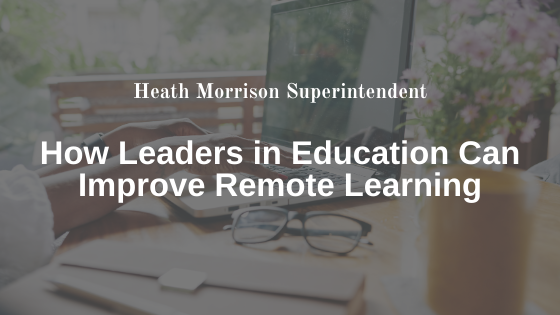With the continued impact of COVID-19, many students are continuing in distance learning. As might be expected, this type of education has presented particular challenges for instructors. Since remote learning may be the instructional method for some time to come, many efforts have been made toward simplifying online instruction and providing various methods to engage students. Including personal interaction among students often sparks interest in their instruction, and such engagement, along with a little competition, helps to advance students’ social skills.
There are many ways education leaders can improve students’ learning online and support teachers:
Retain as much humanity in teaching as possible
Always take into consideration the emotional changes in the students and address their needs. Being more personal with students, especially the younger ones, by addressing them in the manner of a teacher remembered fondly often works. Do not forget about the teens, either. Demonstrate interest in students by getting to know them, asking them to describe themselves, inquiring about what things they enjoy doing, watching, etc. During these historical times, having students keep a journal of what they learn each day and their feelings about contemporary issues helps as a release and as a record that they can share later with others.
Prioritize what is taught
Keeping things simplified and teaching the most important concepts is essential. Demonstrating interest in the students’ learning influences their growth and well-being. Letting the students teach their instructor or other students about a topic they enjoy also develops their involvement and curiosity in the learning environment, along with their language skills.
Design contact time with students in practical ways
Depending on what is taught, teachers should schedule their teaching in block periods, the length of which is age-appropriate. Introducing a few things well is preferable to teaching numerous concepts that may be more easily forgotten. Also, teaching essential ideas upon which others are later built establishes a good foundation for students. Often, those students who have learned these basic concepts can develop on their own. For instance, teaching students how to write an organized paragraph can lead to writing a coherent essay.
Use the opportunities that distance learning presents
Having students write to their teacher or other students, such as a penpal in another country, about what they are doing in their homes allows them to share their feelings and struggles. This action, then, substitutes for the social contact at school. Often, too, students themselves find ways to learn that are quite effective. Moreover, they can teach each other via online learning. Such engagement with one another can substitute for socialization at school.
Having students read literature that relates to their situations also affords them a greater understanding of humanity. Students can also write to others and their teachers about those who have experienced conflicts and barriers to their existence, some of which are much greater than COVID-19. Such literary works as The Diary of Anne Frank, Elie Weisel’s Night, or Erich Maria Remarque’s All Quiet on the Western Front instruct readers about existential struggles.

